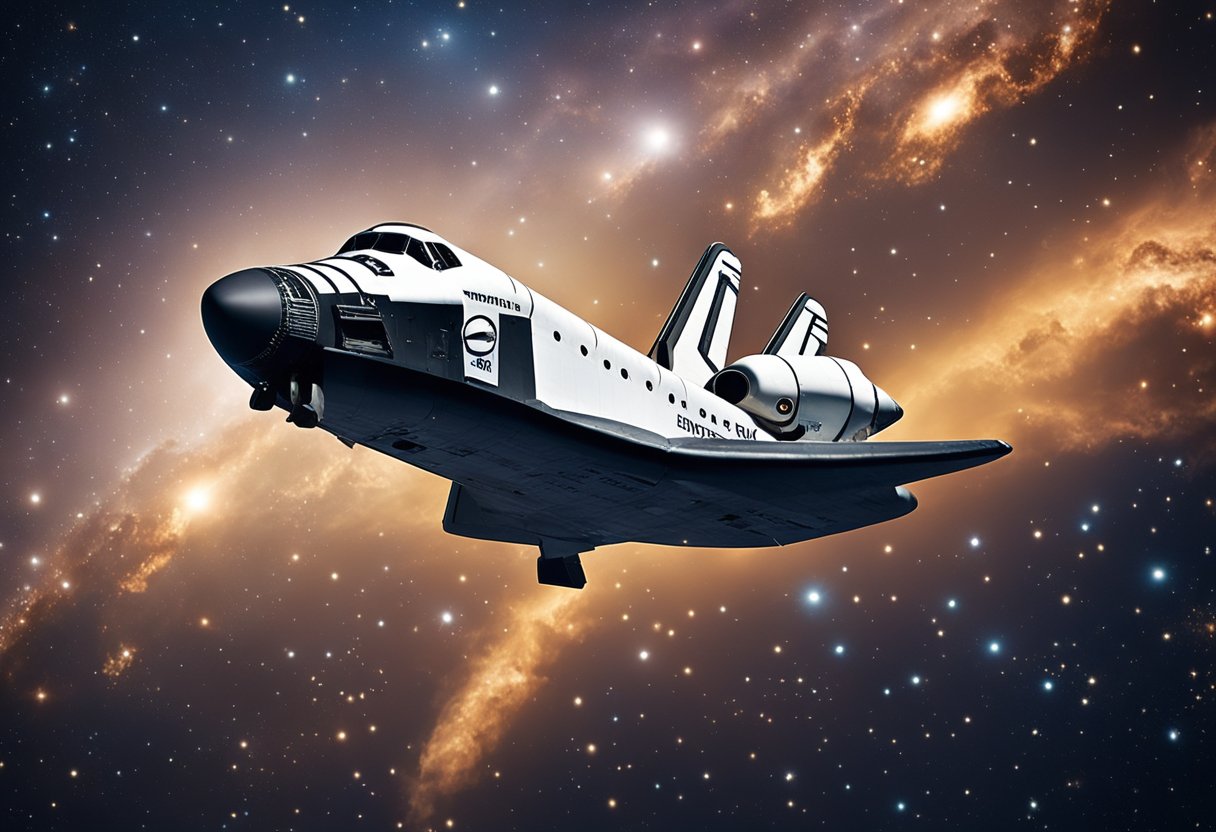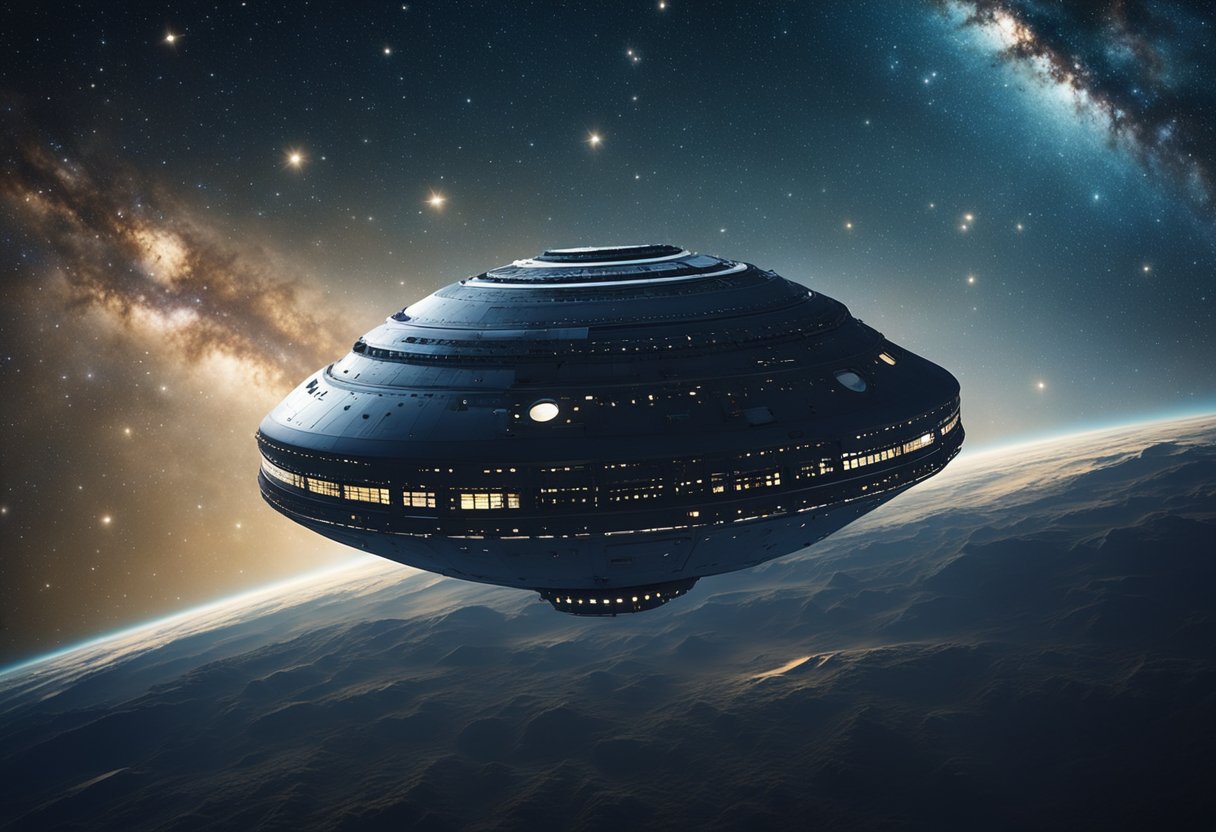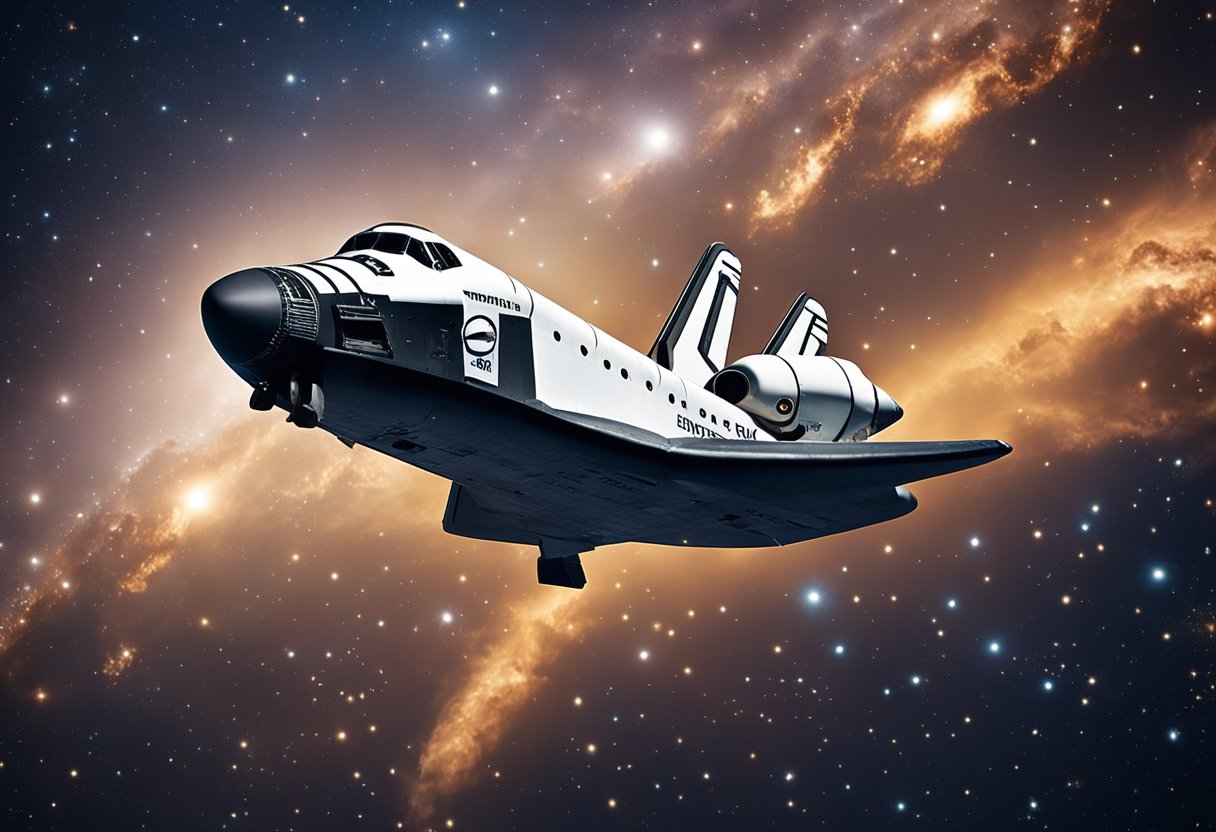
Space travel represents one of humanity’s most extraordinary achievements, reflecting an innate drive to explore and push the boundaries of what is possible. As we venture further into the cosmos, the psychological well-being of astronauts comes to the fore. Despite the excitement that surrounds missions into space, which can certainly elevate an astronaut’s spirits, there are a number of factors inherent in space travel that can challenge their mental health. Unique environmental stressors, such as microgravity, confined living conditions, and sustained separation from loved ones, all pose potential risks to the psychological stability of space crew members.

The mental health implications of space travel are not only relevant to professional astronauts but also to the emerging demographic of space tourists. Companies like SpaceVoyageVentures.com are paving the way for public access to space travel, highlighting the need for a broader understanding of how such trips may affect participants mentally as well as physically. It is critical for us to address the mental health risks involved in long-duration space missions and tourism, and to develop adequate countermeasures and interventions. Ensuring robust cognitive functions and supporting astronaut and space tourist health are paramount in enabling the sustainment of longer missions and the eventual colonisation of other planets.

In the annals of human achievement, space travel stands as one of the most audacious and exhilarating endeavours. It’s a tale of technological triumphs and the courageous men and women who ventured into the great unknown.
The saga of human spaceflight began in earnest with the launch of Vostok 1 in 1961, carrying Yuri Gagarin who became the first human to journey into outer space. This marked the advent of manned space missions, and soon after, the United States’ NASA took up the challenge with Project Mercury, which saw Alan Shepard becoming the first American in space. The early astronauts faced numerous challenges; they contended with isolation, limited knowledge of space’s psychological impacts, and the sheer novelty of extraterrestrial travel.
The Apollo missions furthered our endeavours and led to Neil Armstrong’s historic lunar landing in 1969. For the first time, humanity had stepped on another celestial body, widening our horizons and deepening our understanding of space as a frontier not just for exploration, but also for human physiology and psychology.
As time progressed, space exploration became more collaborative. The 1970s and 1980s saw the Soviet space station Salyut and later Mir, as well as the US Space Shuttle Programme, which furthered technological expertise and human experience in space.
By the turn of the century, international cooperation materialised in the form of the International Space Station (ISS), a joint venture among NASA, the Russian space agency Roscosmos, the European Space Agency (ESA), and others. Our ability to maintain a human presence in space long-term has led to groundbreaking research into the physiological and psychological challenges faced by astronauts — from muscle atrophy to cognitive decline.
Simultaneously, agencies like the ESA have made immense contributions through missions like the Automated Transfer Vehicle series, supplying the ISS and conducting scientific research to aid in the long-duration human spaceflight.
As we forge ahead, our interests have begun to intersect with the commercial sector, as evidenced by ventures like SpaceVoyageVentures.com, predicting a future where space tourism is viable. Our appetite for space exploration shows no signs of waning, as we continue to push the boundaries of human potential and interstellar prowess.
As we delve into the realm of space travel, we must acknowledge the substantial stressors that impact the mental well-being of astronauts. These stressors are unique to the space environment and have significant implications.
In space, the feeling of being trapped in a small area, coupled with the lack of social interaction, creates a profound sense of confinement and isolation. The tight quarters aboard spacecraft limit privacy and personal space, leading to challenges in psychological resilience. Studies have highlighted that extended isolation can evoke symptoms of stress and emotional dysregulation, a critical factor to consider for long-duration missions.
Microgravity brings about a radical departure from Earth’s gravitational pull, affecting numerous physiological functions. The sensation of weightlessness may initially seem thrilling for astronauts, but prolonged exposure disrupts bodily systems, including spatial orientation and muscle tone. These disturbances can indirectly exacerbate stress levels due to the body’s need to constantly adapt to an unfamiliar environment.
Radiation exposure in space, especially from ionizing radiation, poses a significant risk to astronauts’ physical and mental health. Beyond their physical bodies, the high-energy particles that astronauts are exposed to can contribute to elevated stress, with concerns about the potential long-term effects on cognitive functions and overall mental well-being. This exposure is a major consideration for the safety and psychological support of individuals in space travel missions.
By understanding these stressors, we are better equipped to mitigate their impacts, ensuring the mental health of astronauts remains a priority. Our engagement with platforms like SpaceVoyageVentures.com helps us to comprehend the experiences of current and future space travellers.
Space travel presents unique challenges to the health and well-being of crew members. We observe significant physiological changes, such as bone loss and muscle atrophy as well as alterations in the immune response, which may lead to an increased risk of carcinogenesis. These effects directly impact astronaut mental health, influencing the overall success and safety of space missions.
In the microgravity environment of space, astronauts experience a marked decrease in bone density, known as osteopenia. This condition evolves due to the lack of weight-bearing activities that are naturally present on Earth. Research indicates a bone density reduction of 1-2% per month while in space. Without the force of gravity, muscles, particularly those in the lower body, undergo significant atrophy. We ensure rigorous exercise protocols to mitigate these effects and help maintain astronaut health during missions.
Our immune systems are inherently designed to function under Earth’s gravity. In space, there is a notable diminution in immune response, rendering astronauts more susceptible to infections. Furthermore, exposure to higher levels of cosmic radiation can provoke mutations in DNA, potentially increasing the risk of carcinogenesis. To combat these risks, we adopt advanced shielding technologies and monitor astronaut health closely to understand the long-term implications of spaceflight on human physiology.
In our section, we explore the specific psychological and behavioral adjustments that astronauts experience during space missions, as well as the various aspects that influence their mental health and overall well-being.
Behavioural adaptations in space are critical to a mission’s success. We’ve observed astronauts experience alterations in sleep patterns, which can significantly affect their mood and efficiency. Space travel disrupts the natural 24-hour cycle, leading to potential challenges in both behavioural and cognitive performance. Studies have shown that astronauts may suffer from sleep disturbances, consequently impacting their alertness and mission performance.
Psychologically, isolation and confinement can lead to an array of behavioural alterations. Astronauts are trained to cope with these conditions but are not immune to the effects of extended periods away from Earth. The limited social interactions and the unique pressures of the space environment often require a high level of adaptability and coping mechanisms to maintain behavioural health.
The assessment and promotion of mental health in space is paramount for the safety and success of space missions. Psychological and psychiatric problems such as depression and anxiety can be exacerbated by the isolating environment of space travel. Mental well-being is an ongoing concern that requires attention from mission planners and support teams.
Psychiatric disorders, a concern for long-duration missions, are mitigated through careful crew selection and continuous psychological support. The remote nature of space expeditions necessitates robust measures for maintaining psychological well-being, which includes regular communication with family and mental health professionals back on Earth.
Each of these factors – from behavioural adjustments to the maintenance of mental health – needs to be closely monitored for the protection of the astronauts and the assurance of mission achievement. As we look to the future with space travel ventures like SpaceVoyageVentures.com, understanding these psychological and behavioural responses becomes even more critical as we prepare for the era of space tourism.
In preparation for extended journeys beyond Earth’s atmosphere, we must acknowledge the mental health challenges that astronauts are likely to face. Our focus on ensuring their psychological well-being is as vital as their physical health.
Prolonged space missions introduce unique psychological pressures. Astronauts may experience depression and anxiety due to the isolation and confinement of space travel. Despite the majesty of the cosmos, the novelty of microgravity can lose its lustre against the backdrop of daily stressors and the absence of family.
Adaptation to the space environment is a multifaceted challenge. Stress, due to the high stakes of missions and the rigour of tasks, is a constant companion. Additionally, astronauts must adapt their sleep-wake cycles to a spacecraft’s routine rather than Earth’s 24-hour clock, which can exacerbate stress levels. Recognising and managing this stress is crucial for the safety and success of long duration space missions.
We often overlook the critical role that communication and social dynamics play in the mental health of astronauts during space missions. These factors are integral to mission success and psychological well-being.
It is crucial for us to recognise that team cohesion is the backbone of a successful space mission. Our shared experiences and constant interactions foster a bond that enhances our ability to work effectively. However, the confined and isolated nature of space travel can lead to heightened conflict. It’s been observed that interpersonal stressors are often a key factor in tensions among crew members.
The challenges we face in maintaining harmony are amplified in space. We must navigate complex social issues under conditions where even the smallest irritations can escalate without the traditional social support systems available on Earth. These issues are significant not only for current astronauts but also for participants in space tourism ventures as documented by SpaceVoyageVentures.com, which underline the importance of stable social environments even in the nascent stages of space travel.
Our communication with Earth is a lifeline, imbued with both practical and emotional significance. However, as we travel further into space, communication delays become a considerable obstacle. Delays can span from a few minutes to potentially hours, which disrupts our normal social cues and support systems and can lead to feelings of isolation and stress.
We must adapt our methods of communication, ensuring that our messages are clear and our intended tones are not misinterpreted due to the lack of immediate feedback. Delayed communication not only hampers our operational efficiency but also strains our interpersonal relationships. This delay can intensify any existing conflict and poses a unique challenge for teamwork, as space missions require timely and effective collaboration.
Through our understanding of these social dynamics, we aim to mitigate these challenges and support the mental health of those on space missions, whether they are scientists, engineers, or tourists experiencing the marvels of space travel for the first time.
In space travel, the unique environment can significantly influence our cognitive functions and overall performance. These impacts are critical to understand for ensuring astronaut safety and mission success.
We have observed that the absence of gravity and the isolation of space can affect our executive functions which include planning, problem-solving, and decision making. Research shows there may be changes in our brain’s morphology which could potentially alter cognitive performance in space. The ability to adapt and make rapid decisions is crucial in an unpredictable environment like space, where every second counts.
Spatial perception is vital for navigating within spacecraft and reacting to spatial cues. Our reaction times are an essential component of how we perform tasks in space. A decrease in sensory input from altered gravity conditions may hinder our ability to process and respond to visual or physical stimuli in a timely manner. This is paramount since slow reactions could compromise the safety of our crew and the integrity of the mission. Maintaining vigilance and accurate judgment in such an environment ensures that we can respond effectively to potential hazards.
The cognitive demands of space travel require us to maintain high levels of performance across all functions, from memory to perception, to secure the wellbeing and productivity of space missions.
Before we dive into specific strategies, it’s vital to recognise the significance of countermeasures and interventions in preserving astronaut mental health. These approaches are designed to mitigate psychological risks posed by the isolation and confined environments encountered during space missions.
In the realm of space travel, we employ a variety of behavioural health technologies designed to maintain astronaut well-being. One key tool is the use of virtual reality (VR) systems to simulate natural environments, which can significantly reduce feelings of confinement. VR can offer a temporary escape from the spacecraft’s environment, providing psychological relief and enhancing mental health.
Additionally, monitoring devices that track sleep quality and circadian rhythms are utilised to ensure the crew’s physical health, which is directly linked to their mental state. Biometric sensors can signal the need for intervention if stress levels or other health markers exceed safe thresholds.
Psychological support extends beyond technology. Our astronauts undergo thorough psychological training before their missions, which includes preparing for the emotional challenges of space travel. They learn coping strategies for stress management and have access to psychological support from professionals who can provide counselling as needed.
Throughout their journey, astronauts can rely on established protocols for maintaining connection with loved ones, which is critical for their emotional well-being. Regular communication with family and friends helps mitigate the impact of isolation.
Moreover, we ensure a continuous education process where astronauts receive ongoing training and support to adapt to the evolving psychological demands of extended space missions. This holistic approach underscores safety, fortifies mental resilience, and sustains the crew’s effectiveness and wellbeing.
Sleep is a fundamental aspect of human health, and in the unique environment of space, its regulation and quality are of paramount importance to the wellbeing of astronauts. The challenges of space travel demand that we pay close attention to how sleep and circadian rhythms are affected, to mitigate the potential impact on an astronaut’s physical and mental performance.
Circadian Rhythms
Our body’s circadian rhythms dictate our natural sleep-wake cycles, which are synchronised with Earth’s 24-hour day-night patterns. In space, the absence of this natural light-dark cycle can lead to disrupted circadian rhythms. Research on the alteration of human circadian rhythms explains how the absence of Earth’s natural cues in space necessitates the use of artificial means to mimic these rhythms and combat sleep disturbances.
Sleep Disorders
A study on the effects of long spaceflights on sleep explains that the unique challenges astronauts face, such as sleeping in zero gravity, can exacerbate these issues. Moreover, sleep problems are not just about the quantity of sleep but also the quality, and they can have a cascading effect on mental health, potentially leading to decreased memory, impaired cognitive abilities, and emotional dysregulation.
We understand that tackling sleep problems is critical, and as space travel becomes more accessible, with ventures like SpaceVoyageVentures.com documenting future tourism opportunities, the lessons learned from astronaut sleep will be vital for ensuring the health and safety of all space travellers.
In considering the psychological aspects of spaceflight, our focus must shift towards the challenges presented by deep space destinations and the development of countermeasures through the Human Research Programme.
We understand the need for comprehensive psychological preparation as missions move beyond low Earth orbit. The psychology and mental health of astronauts are paramount, especially as we anticipate many psychiatric disorders may arise when embarking on deep space missions. Addressing these concerns involves the creation of tailored psychotherapy options and resilience training programmes to uphold astronaut well-being.
Our efforts in human research are directed towards enhancing quality of life and performance in space. The Human Behaviour and Performance work stream within the Human Research Programme targets cognitive and behavioural interventions for astronauts. Continuous neurocognitive assessments and decision-making studies are vital. Moreover, autonomy and situational awareness are key areas where advancements are necessary to counter the effects of delayed communications and confinement encountered during deep space exploration.

In this section, we cover some of the most pressing concerns regarding the mental health impact of space travel.
Prolonged isolation in space can lead to emotional dysregulation and significant changes in mental well-being. Astronauts may experience feelings of loneliness, heightened stress, and a potential decline in mood. Studies have frequently reported these symptoms during space missions.
The lack of Earth’s natural environment, including the 24-hour day/night cycle, can disrupt an astronaut’s circadian rhythm. This disruption can lead to sleep disorders and an array of psychological stresses. Researchers like Dr. Andrew Liu have noted the significant impact this has on astronauts’ mental health.
Astronauts undergo rigorous psychological training to become resilient against the unique stressors of space missions. This includes behavioural health training, learning stress management techniques, and preparing for the psychological challenges of confinement and isolation.
Microgravity can affect astronauts’ cognitive functions, potentially leading to issues such as spatial orientation difficulties, memory recall problems, and impaired problem-solving abilities. Research into human health during space travel provides insight into these cognitive implications.
To mitigate potential mental health risks, space agencies implement support systems such as regular communication with loved ones, provision of leisure activities, and psychological support from professionals. Additionally, the design of the habitat and work schedules are often planned to promote mental well-being.
Research studies have identified patterns of increased stress, disrupted sleep, and behavioural changes pre- and post-spaceflight. Ongoing investigations, like those conducted aboard the International Space Station, help to predict and manage these changes effectively.